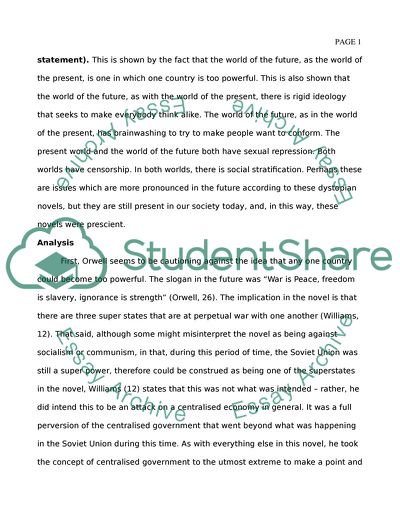Cite this document
(“Orwell and We: The Future Is Now Research Paper”, n.d.)
Orwell and We: The Future Is Now Research Paper. Retrieved from https://studentshare.org/literature/1623803-orwell-and-we-the-future-is-now
Orwell and We: The Future Is Now Research Paper. Retrieved from https://studentshare.org/literature/1623803-orwell-and-we-the-future-is-now
(Orwell and We: The Future Is Now Research Paper)
Orwell and We: The Future Is Now Research Paper. https://studentshare.org/literature/1623803-orwell-and-we-the-future-is-now.
Orwell and We: The Future Is Now Research Paper. https://studentshare.org/literature/1623803-orwell-and-we-the-future-is-now.
“Orwell and We: The Future Is Now Research Paper”, n.d. https://studentshare.org/literature/1623803-orwell-and-we-the-future-is-now.


